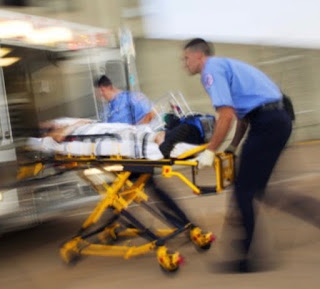My first day of school was in 1951, in Jacksonville, Florida, near the Naval Air Base where my dad was stationed, serving in the military that paid for him to study medicine. I took a yellow school bus. I remember it vividly, and the uncertainty I felt about where it was taking me. My last day of high school was in 1963, in Nashville, Tennessee. I left in my embarrassing 1953 Plymouth and headed for our graduation party, where Billy Buist, drunk as a skunk, stood on a table and announced that he and his sweetheart Brenda were married.

During those years, I learned about how organs work, which made me think I wanted to be a doctor, like my father, I ducked and covered under my school desk to practice surviving a nuclear attack by the Soviet Union, I ducked and covered under the hay in the eighth grade with Jane Sanders (uneventfully, sadly) and the next year determined, with what little consciousness remained after I tackled someone much bigger than I, that I was not meant to be a high school football player.
The one thing I never did, which never even occurred to me as a possibility, was worry about being shot in school.
During those school years of the 1950s and early sixties, in the United States there were nine school shootings involving students, not counting a few accidents.
One third the number killed in 2012 at Sandy Hook Elementary School. About half the number killed last year at Marjory Stoneman Douglass. One fewer than were killed later that same year at Santa Fe High School.
I don’t understand why this is happening. Honestly, no one seems to. There are more guns now than ever, but there were always plenty of guns in the South, where I grew up. You didn’t need an assault weapon. You could do plenty of damage with a couple of semi-automatic shotguns loaded with buckshot.
Killing kids, or being killed by them, just wasn’t a thing in those days. We were plenty nasty. You didn’t want to cross the wrong people. But the worst you got for it was a bloody nose.
WW II wasn’t long behind us, and Korea was still a fresh wound. Maybe we had just had enough of killing for a while. Eisenhower was President for much of that time, then Kennedy. We were building the interstate highway system and going to the moon. We had beaten our swords into plowshares.
We had something of a hatred relapse when we killed JFK and his brother, and then Martin, and a further bout of global paranoia when we went to war in Vietnam, but for a long time we seemed to calm down and embrace bareknuckled capitalism as an outlet for our aggressions.
Then, slowly, like the return of a disease we thought we had beat, we started marching again to the drumbeats of war. Afghanistan, Iraq, Libya, Syria, mired in the sands of the Middle East, trying to defeat those who hated us (and get their oil, while we were at it), only succeeding in making them hate us more, just as we had in Vietnam.
The wars after WW II and Korea didn’t pull us together, they drove us apart. We began to direct the hatred we felt for others at ourselves. Coincidentally, the Internet let us do that better than ever. Something like a civil war broke out in cyberspace. It’s raging hotter than ever.
Growing up in the South, I heard story after story of how the Civil War divided communities and families, sometimes even pitting brother against brother. It was hard enough to understand how that could happen then. I certainly didn’t expect ever to see it happen again.
But here we are, as angry and divided as I imagine the North and South were in 1860. The only thing to our credit this time is that we aren’t all shooting at each other, just some of us, notably the ones killing kids in schools and worshipers in churches and synagogues. But in our national discourse we have picked up the cloak of hatred and are wearing it proudly.
Our president isn’t building roads like Eisenhower. He doesn’t exhort us to go to the moon. He’s bribing foreign governments to investigate his political opponents, and that’s just fine with his supporters in the public and in the Senate. It’s even fine with his attorney general. There seems to be no common ground here, no neutral zone for peacemaking. You’re either with him or against him.
The national virus of hatred and violence, almost eradicated, I’d hoped, is resurgent, and spreading wildly. It will not be denied. More lives will be lost. Something close to the catharsis of war will be needed to let it feed until there are no hosts left for it. Until it is forced by our regret and sorrow into dormancy once again.












